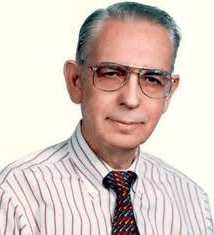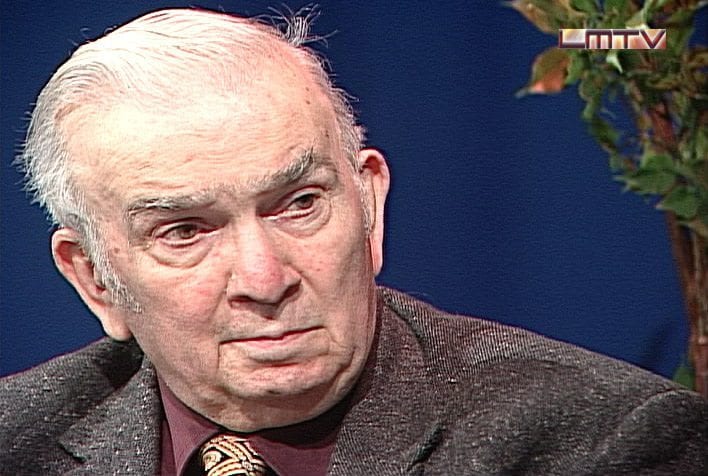Combating Armenian “genocide” falsehoods: Education and pro-activity are key for Turkish side

Passivity and lethargy are the major reasons for the Turkish side’s failure to effectively convey its message. Success is only possible through a pro-active stance, which requires education.
By Ferruh Demirmen, Ph.D.
August 11, 2017
It is well established that Turkish efforts to combat Armenian “genocide” falsehoods have been very ineffective. This is borne out by the fact that, according to Wikipedia, as of 2017 governments and parliaments of 29 countries as well as 46 states of the United States have recognized Armenian “genocide.” The latest recognition was in the U.S. State of Texas: http://www.turkishny.com/english-news/5-english-news/247851-texas-house-resolution-hr-191-anatomy-of-a-shameful-armenian-genocide-resolution
The bitter irony in this dismal record is that historical facts, as well as judicial rulings and the underlying 1948 UN Convention, clearly favor the Turkish position and negate the genocide characterization. The recent rulings from the European Court of Human Rights (ECHR) and France’s Constitutional Court, for example, consider the 1915 events in Ottoman Anatolia controversial, calling attention to the requirement of a court determination for genocide recognition. Yet, there exists no such determination. Hence “genocide” is far from proven.
The failure of the Turkish side to convey its message effectively is in part related to the Western bias rooted in ethnicity and religion. Almost all countries that one way or another have so far recognized Armenian “genocide” are not only Western, or of Western heritage; they are Christian. In these countries false historical assertions from the Armenian side are automatically accepted as the truth. The phenomenon is a reflection of the “Armenian Settled History Syndrome,” whereby the Armenian allegations are accepted uncritically as facts.
A prime example is Wikipedia, which is blatantly pro-Armenian, to the point of obvious misinformation, e.g., “UN recognition of Armenian genocide” (Whitaker Report).
While bias is a social malady that is difficult to overcome, there are steps that the Turkish side can take to alleviate the situation. Passivity and lethargy are the major reasons for the Turkish side’s failure to effectively convey its message. For success, Turks should shove off lethargy or passivity and be pro-active.
With a pro-active stance, the Turkish side should be able to: (a) Effectively disseminate its own narrative (and the truth) in the media (including the social media) and conferences, (b) seek accountability in a court of law, (c) lobby and educate politicians to oppose one-sided resolutions. Lobbying includes political campaign contributions as may be appropriate.
Education is the key
But this begs the question: What is needed for pro-activity for the Turkish side? It is argued here that the road to pro-activity is motivation, which itself requires information. Information, or knowledge, is the driving force for action and pro-activity.
Information does not happen in a vacuum. It is acquired through education – self-induced education, or education obtained externally, e.g., through exposure to media.
A major setback for the Turkish side on the Armenian issue is that Turks are generally ignorant or very poorly educated on the 1915 events in Ottoman Anatolia. When abroad, they are constantly subjected to high-decibel negative propaganda from the Armenian side. The Armenian propaganda naturally deceives the unsuspecting public as well, politicians included.
To educate Turkish people, including those living abroad, properly on the 1915 events, avenues that readily come to mind are:
- Promote dissemination of Turkish view through printed and digital media, including TV programs, at home and abroad. A new TV forum series “Daylight on History” initiated by TADA (Turkish Anti-Defamation Alliance) is designed to reach viewers in America.
https://www.youtube.com/watch?v=9ZCWKOoldQE
- Promote academic studies and independent research at home and abroad, e.g. think tanks and doctoral studies at the University of Louisville and Utah University.
- Promote conferences with a balanced agenda and balanced contributors.
- Promote and finance Hollywood-type productions reflecting the Turkish narrative.
In disseminating information, eyewitness data from the survivors and their descendents should be given due consideration.
Start with school curriculum at home
This subheading could as well be named “Acknowledge your adversary.” A major shortcoming in the education of Turks on the Armenian issue is the virtual exclusion of the 1915 events in school curriculum. Under the “Peace at home, peace abroad” dictum that has been in effect since the founding of the Republic, Turkish children at school are not taught about the 1915 events.
The war and the 1915 events were over, and the Turkish governments did not want to create animosity and ethnic tension against the neighboring Armenia, and Armenians in general.
As a result, Turkish children grow hopelessly ignorant on the Armenian issue. What is more, Turks who visit or live abroad (generally Europe and North America) get almost a shock effect when they witness unending “genocide” diatribe from the Armenian lobby in ordinary life, from the media to parliaments to Hollywood productions. They may also encounter biased school curricula that tell the Armenian version of the Turco-Armenian conflict, which impacts their children.
Unprepared, Turks typically become apprehensive, and even intimidated. Apathy, indifference and passivity become modus operandi.
A good example is the feeble Turkish response to the HR-191 Armenian “genocide” resolution referenced above, that was introduced at the Texas House of Representative early this year.
Given the animus of the Armenian side, in particular the Diaspora, however, the well-intentioned “Love Thy Neighbor” message embedded in the Turkish educational system is outdated. It has outlived its usefulness. Since the 1960s, the Armenian Diaspora, in footstep with Armenia, has aggressively pursued anti-Turkish agenda, even to the point of inciting anti-Turkish hatred in young minds of ethnic Armenians.
If not for such venomous spirit, how to explain the ASALA/JCAG terror of the 1970s through 1990s that took the lives of 58 civilians, 27 of them Turkish diplomats, and 7 diplomats relatives and staff?
More than a century has passed since the 1915 events; but the drums of anti-Turkish invective from the Armenian quarters are loud and clear. Thanks to a lobbying blitz from the Armenian Diaspora, in the last two years Armenian “genocide” has been recognized in Germany (the Bundestag), Austria, the Netherlands, Luxembourg, Paraguay, Brazil, Chile, Syria (!), the Holy See, the Czech Republic, and the U.S. states of Missouri, South Dakota, West Virginia, Wyoming and Texas.
The Jewish Council for Public Affairs and the Holocaust Museum in the U.S. have joined the “genocide” chorus, and a new Diaspora-funded Hollywood production, The Promise, has hit the movie theaters in America to deceive the public.
Surely, no sign of slowing down by the Diaspora! A vengeance-driven propaganda campaign to denigrate Turks is in place.
One effective response to such anti-Turkish offensive is to change the school curricula in Turkey and include the 1915 and preceding events in history teaching. The betrayal of the Armenian minority, the lack of ill-intent on the part of Ottoman authorities in the Relocation decision, the reality of casualties on both sides, and the atrocities perpetrated by Armenian militant bands against Moslem (and Jewish) civilians, should be included in teaching.
Turkey does not have an issue with its citizens of Armenian origin, and the intent is not to alienate the Armenian community. Roughly 100,000 illegal Armenian workers from Armenia make a living in Turkey without interference from the government, and there is regular air traffic as well as indirect trade between the two countries.
Instead, the intent is to make Turks aware of their history. Put more bluntly, Turks should know and acknowledge that the Armenian Diaspora, and its consort Armenia, are adversaries to be reckoned with.
Knowledge is power. And power is needed to fend off an adversary.
What further reason?
It is worth noting in this context that Armenia’s 1990 Declaration of Independence calls eastern Turkey (mainly the 6 provinces) “Western Armenia,” with haunts of the “Wilsonian Armenia” of the Sèvres Treaty, while its 1995 Constitution, in describing the national coat of arms, makes reference to Mount Ararat – located in Turkey.
Yes, nearly a century after the signing of the Sèvres Treaty, Armenia still has aspirations (delusions) about the “Wilsonian Armenia,” with implicit support, one must add, from the West.
These are not signs of a friendly neighbor.
Neither are the demands from the Armenian side for apology, compensation and territory – demands that are commonly attached to the allegations of Armenian “genocide.”
It is not surprising that the 2009 Zurich Protocols between Turkey and Armenia broke down in a few years without any progress. Normalization of relations requires goodwill on both sides. A recent attempt toward normalization by the Armenian side and championed by the Sabancı University (Istanbul Policy Center) assumes unrealistic premises and does not hold much promise.
It should also be added that:
- The call made by the Prime Minister of Turkey Recep Tayyip Erdoğan in 2005 to establish a joint historical commission with Armenia to debate the 1915 events has fallen on deaf ears on the Armenian side. Erdoğan said Turkey would abide by the conclusion reached. In the meantime Armenian archives held in Yerevan, Boston, Istanbul and Jerusalem (Armenian patriarchates) are closed except to a selected few.
- The conciliatory gestures made in recent years by top Turkish officials toward the Armenian side, such as the call in 2014 for rapprochement between Turks and Armenians, and effectively one-sided (!) condolences extended in 2014 and 2015 to Armenians on their losses in 1915, have elicited no reciprocity. Turk-vilification goes on unabated. Tellingly, an “apology” campaign launched in 2008 by some over-zealous Turkish liberals – without mentioning the word “genocide” – has not satisfied the Diaspora.
- Just as Armenia had welcomed as a hero the ASALA terrorist Varoujan Garabedian when he was released from French prison in 2011 after the 1983 deadly Orly airport attack in Paris, the Diaspora in America has provided legal defense fund and lobbied for the release from prison of Armenian terrorists like Gourgen Yanikian and Hampig Sassounian that assassinated Turkish diplomats. There is even a memorial honoring the ASALA terrorists in the military cemetery in Yerevan
- Armenia has been providing logistical and training help to the PKK terrorists in Turkey -a relationship that goes back to 1984 when ASALA ceased to operate. The PKK/PYD/YPG terrorists appear to have been helping Armenians in skirmishes in Nagorno-Karabakh.
Conclusion
The somber reality for the Turkish side is that it is facing a formidable adversary determined to malign Turks with unfounded “genocide” accusations on events that go back more than a century. It is the well-heeled, well-organized Diaspora working in consort with Armenia.
Turks should wake up, acknowledge their adversary, and respond accordingly.
A wise old Turkish man once observed cynically: “Offer one arm as a sacrificial limb to Armenia or the Diaspora; it will take it and will ask for the other arm.”
A new roadmap or paradigm to combat Armenian accusations is needed. The first step in this paradigm is overhaul of the Turkish education system to include Turco-Armenian conflict in school curricula. Education should lead to motivation, hence pro-activity. Lethargy should be no more.
For those Turks who are willing to delve into the Armenian issue, a newly released book, The Big Lie,” (Ka Kitap, 2017) by researcher Şükrü Server Aya is highly recommended. Aya debunks the “genocide” myth based on multiple sources. The book is available in English, Turkish and German.
It goes without saying that the commitment of the Turkish government in the implementation of the new roadmap is essential. If there is a motto in this new roadmap, it is “Education, education, education.”
And education starts at home.


Leave a Reply